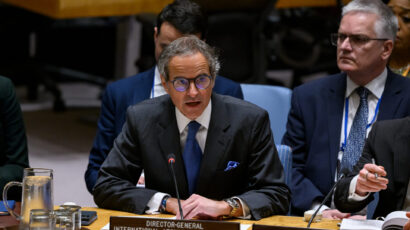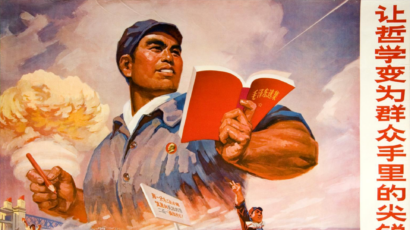Why transparency matters
By Pramit Pal Chaudhuri, February 14, 2013
Do a country's nuclear policies, whether civilian or military, benefit from media scrutiny and public debate? How one answers this fundamental question determines one's attitude toward giving journalists more access to nuclear decision-making processes. A related question, and one that seems to be emerging from this Roundtable, is how to accustom a country's nuclear establishment to the idea that scrutiny and debate are indeed positive forces.
The best reason for subjecting nuclear policy to public examination is that debate allows policy to be vetted before it goes into effect. In the absence of this, crises can cause decisions to be made in environments of high emotion and political stress. India's recent history provides several examples of timely communication allowing policies to be instituted smoothly — or of failure to communicate having the opposite effect.
An often overlooked aspect of the 2008 US-India nuclear cooperation agreement is that it was viewed with deep suspicion by many of India's nuclear scientists, by people on the extremes of the country's political spectrum, and, according to what I was told by an Indian negotiator, by “70 percent of the Indian diplomatic community.” Yet Parliament approved the deal, and it did so with strong public support. What accounted for this support, especially considering that, judging from polling, the public had only the barest understanding of the deal? The answer is that the agreement resulted from a transparent negotiation process: Each step of the negotiation was publicized, and each finalized document was made public.
An example of insufficient transparency is provided by India's flawed 2010 civil nuclear liability law, which is out of keeping with international liability norms and makes importing reactors much more expensive than it should be. The law was drafted by populist parliamentarians. The governing coalition made little effort to explain the principles of nuclear liability to the opposition. As the bill neared a vote, my phone started ringing with calls from Indian manufacturers of nuclear components, who were realizing too late that the bill posed problems for them. My hypothesis as to why things happened as they did is that the country's nuclear establishment, so used to getting its own way, and never having interacted with Parliament in any formal manner, simply assumed the executive would intervene at some point and set things right.
Similar issues emerged following the accident at Japan's Fukushima Daiichi Nuclear Power Station. New nuclear power facilities in India have long faced protests from farmers whose land is acquired for plant construction; after Fukushima, public demonstrations went into overdrive, affecting even facilities whose construction was already far advanced. While the protests revealed how little the public understood about nuclear safety, they also showed how little effort the nuclear establishment had made to communicate. I remember a lengthy press briefing by the then-head of the Atomic Energy Commission of India that was so technical and laden with jargon that most of the assembled journalists stopped taking notes. Nor was a press release or background paper issued.
The big worry. My real concern about poor communication and lack of transparency is that India's most important public nuclear debate — a debate on the nation's nuclear arsenal and doctrine — has yet to take place. When it does, the public might easily be influenced by a campaign of fear, for instance centering on the idea of a missile gap. India's nuclear arsenal has always been treated as a sanctum sanctorum, a realm to which the public is forbidden entry; doctrine, to the limited extent it has been publicized, has been treated as holy writ that cannot be questioned. Meanwhile, Pakistan is accumulating weapons-capable fissile material, Iran appears to be seeking a nuclear deterrent, and several major Asian nations are flirting with missile defense. From a doctrinal point of view, this is hardly a stable environment.
Amid all this, an effort to stoke public emotion on nuclear issues could produce an intensified arms race. The Indian public is not more vulnerable to emotional appeals than are people in other countries, but the government has made little attempt to publicize a clear nuclear doctrine, and room thus exists for cynical manipulation. The public has never questioned nuclear doctrine in the past. It is a dangerous assumption of the nation's nuclear establishment that people will not begin doing so now.
Topics: Nuclear Weapons
Share: [addthis tool="addthis_inline_share_toolbox"]














